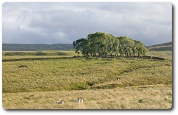Tess of the d'Urbervilles Contents
- Social / political context
- Religious / philosophical context
- Chapters 1-9
- Chapters 10-19
- Chapters 20-29
- Chapters 30-39
- Chapters 40-49
- Chapters 50-59
- Tess as a 'Pure Woman'
- Tess as a secular pilgrim
- Tess as a victim
- The world of women
- Tess as an outsider
- Coincidence, destiny and fate
- Disempowerment of the working class
- Heredity and inheritance
- Laws of nature vs. laws of society
- Modernity
- Nature as sympathetic or indifferent
- Patterns of the past
- Sexual predation
- Inner conflicts: body against soul
Chapter 28
Synopsis of chapter 28
 Angel persists in finding out why Tess will not marry him. He refuses to accept the excuse of social difference. In the end, Tess sets a time when she will tell him her real reason. She is so upset and conflicted, she hides away in a copse of willows. The sunset seems red and menacing to her. She is utterly torn between heart and conscience.
Angel persists in finding out why Tess will not marry him. He refuses to accept the excuse of social difference. In the end, Tess sets a time when she will tell him her real reason. She is so upset and conflicted, she hides away in a copse of willows. The sunset seems red and menacing to her. She is utterly torn between heart and conscience.
Commentary on chapter 28
Hardy stresses the force of natural desire within Tess, a force she has never experienced before.
More on the centrality of passion in Hardy's novels: As well as Tess, many of Hardy's other heroes and heroines powerfully experience natural desire. Very often it causes them to make wrong or irrational decisions, such as marrying unwisely, Jude did in Jude the Obscure:
- Hardy sees these natural forces as a part of nature that has little to do with moral character or wise career moves
- He believes such forces tend towards unhappiness in humans rather than happiness, though the latter is what the characters feel they are being promised. This is a central feature of Hardy's tragic novels.
Tess realises there will be no happiness in her decision, whichever way it goes. The question of powerlessness arises as a central theme again.
'sigh gratis': from Shakespeare's Hamlet II.ii.316-7, meaning to be in love for no material reward.
a girl's craving for an establishment....: Hardy is contrasting working class girls, who enjoy the passion of love as an end in itself, and middle class girls, whose desire for a home and position in society prevents them from seeing love as delight enough.
a coquette of the first urban water: a sophisticated society flirt
snatch ripe pleasure...: echoing Andrew Marvell's poem To his Coy Mistress ll.43-4, in which the poet urges his mistress to yield to his love-making since time presses upon them.
Time
The seasons have changed to September, but since this is a dairy farm, it is not marked by any special activity, as opposed to the activities at Marlott in Ch 14.
Place
Hardy's description of the pollarded willows where Tess hides, and the ensuing sunset, is a brilliant example of pathetic fallacy, and Hardy's ability to symbolise the landscape in terms of inner states of being. Compare the description here to that of the sunset in Ch 21 and, by contrast, to the dawn in Ch 20.
Vocabulary
curds: the thicker milk left after the whey is extracted (see Ch 17)
pollard: cut the trunk and main branches of trees to let thinner branches shoot straight upwards
susceptibilities: sensitivities, sensibilities
trowing: believing, thinking
Investigating chapter 28
- Consider Angel. He has some experience and knowledge of women, but a little knowledge can be a dangerous thing.
- What is his experience 'great enough' for him to know?
- What is his experience 'little enough' for him not to realise about Tess?
- In what ways is this dangerous?
- Reflect on Tess. She is experiencing a conflict between natural instincts, the desire for a man, and her conscience.
- Trace the progress of this conflict through the chapter, perhaps as a graph
- How does she try to resolve it?
- Do we have any sense that she is in control of the outcome of the conflict?
- Are there any significant words or phrases that are clues to this?
- In what way could it be said that nature is Fate here?
- In what other ways is it suggested Tess is changing as a result of her relationship with Angel?
- How is the landscape a projection of Tess's inner state?
- What images do you find particularly powerful here?
